1.
There’s a scene from One Piece that’s stuck in my head no matter how much I try to forget it.
I’m in the shower or in the middle of a work call, and this scene pops up, interrupting the course of my daily life.
It starts with a fight between Mihawk Eye, arguably the greatest swordsman in the world, and Roronoa Zoro, who aspires to be the greatest swordsman in the world.
Zoro opens the fight with his battle-tested three-sword technique, which Mihawk Eye stops with a pen knife.
Shocked by this response, Zoro attacks with a different technique, and Mihawk Eye casually deflects it.
In a sight that’s too painful to watch, Zoro, now desperate to land a hit, swings his swords wildly at Mihawk Eye, who expertly avoids getting hit.
Not deterred, Zoro unleashes his ultimate technique and breaks two swords in the process. There's a long pause, after which Zoro stands up and turns to face Mihawk Eye.
At this point, Mihawk Eye, clearly baffled by Zoro’s resolve despite the glaring gap in their skill levels, asks: “You’re defeated; why do you persist?”* 1
Zoro responds by sheathing his last good sword, opening his arms, and saying, “Wounds on the back of a swordsman are his greatest shame.” When translated from swordsman jargon, this means that although I have lost this fight, I want to end it honourably.
Mihawk Eye — fascinated and then impressed by Zoro’s strength of character — slashes Zoro’s chest with a bigger sword, thereby acknowledging him as a worthy opponent.
End scene.
I was probably 14 or 15 when I first saw this exchange. In between several "WTF" moments and constantly rewinding the DVD player, my first thoughts were: what type of person is so bound by their code of honour that they’re willing to die by it? And how do you [I] become that type of person?
Fast forward a few years, and I stumbled upon the answers to these questions in Joan Didion’s 1968 essay on self-respect. As Didion explains, people with self-respect, like Zoro, exhibit a certain toughness and moral nerve, partly driven by the understanding that anything worth having comes with a price. People with self-respect are willing to accept the outcome — whether good or bad — of embarking on any journey or project.
In other words, Zoro knew that to become the strongest swordsman in the world, he had to fight other equally strong swordsmen, which meant constantly risking death or humiliation — and he made peace with it. Zoro was comfortable with dying for his dream because he had self-respect, which is where the strength of his conviction stemmed from.
2.
Another character who comes to mind when I think of mental fortitude is Rengoku from Demon Slayer. Imagine being up against an opponent with unlimited regenerative powers…as in, they can’t die. Instead of running away, you decide to protect everyone regardless of the outcome. That’s precisely what happened when Rengoku [good guy] met Akaza [bad guy].
Overpowered, with zero regenerative powers [which is to say human] and a duty to fulfil, Rengoku put up the fight of his life.
I was immediately drawn to Rengoku’s sense of duty, his ability to push forward regardless of how inconvenient things were, and his strength of will to do what was required. A sentiment that was equally echoed by Akaza, the bad guy, after seeing Rengoku fight and constantly rebuke his efforts to win him over to the dark side.
In addition to Rengoku’s impressive fighting spirit, what jumped out at me was that he knew the fight was above his pay grade, yet he never wavered. 2
After a lifetime of working at startups, the deeper lesson here was punching above your weight, a mantra that heroes from other anime also share with Rengoku.
Nothing emphasises this point like the scene from My Hero Academia where Endeavour, our flame-wielding hero, burns himself in an endeavour [no pun intended] to save the town against bioengineered bad guys. A move that another character, Lemillion, also employed while protecting a helpless girl from overpowered bad guys.
Although these anime have different themes, one thread that links them all together is the courage their characters display to either pursue their dreams or fulfil their duty no matter the outcome.
The best example of courage I've seen is in the anime Attack on Titans.
Trapped by flesh-eating monsters and with nowhere to turn, a captain sacrifices his entire team to give their best fighter a chance to defeat their opponents. And because pictures alone don't do justice to this scene, here's a video you should absolutely watch.
After all these years, anime fans still talk about the chills they got from watching this scene. On the one hand, I think this scene stands out because the audience sees the soldiers riding toward certain death with fear in their eyes and doubt in their minds.
On the other hand, this scene also resonates because we, the audience, watch others rise above the natural human reaction to flee in the face of imminent danger/death. This mindset is at once aspirational and deeply inspiring. It is immediately clear that this behaviour cannot be faked, conveniently worn, or removed as one pleases.
That is, putting your money where your mouth is is a discipline that one hones in big and little ways by, as Didion puts it, a willingness to invest something of yourself — which usually goes hand in hand with making peace with the outcome [good or bad] of doing that thing.
3.
I've come a long way from the wide-eyed teenager I was when I first encountered anime. My very first one was Naruto in 2008. As I've grown and experienced the roller coaster that's life, I've picked up "big" lessons from anime, like self-respect, duty, honour, courage, responsibility, etc. But I've also picked up equally important and not-so-obvious lessons such as friendship, camaraderie, compassion, and the fact that power has responsibility.
Two anime characters stand out when I think of these traits: Deku [Midoriya] and Tanjiro.
I like this description of Deku:
"He is idealistic to a fault. He throws himself in harm’s way to help others with no sense of his safety. He, quite literally, destroys parts of his body every time he uses his powers, and he does so again and again and again and again and again and again till his arms have the flesh nearly stripped from the bone."
"He [Deku] puts others first in the most maddening, most unrealistic ways. His sense of pride comes solely from his ability to serve his people. He has the power of a near god and carries himself like a servant. He is completely without ego."
"He is a fool."
"He is the best of us."
Indeed, Deku [Midoriya] is the best of us with his servant-like mentality while having god-like powers.
He’s just like Tanjiro from Demon Slayer, who also has unreal powers and constantly risks his life to protect everyone.
However, Tanjiro takes his servitude further by showing compassion — without justifying their actions — even to the monsters he kills. In various scenes, we can see Tanjiro trying to understand why: “Why did this person become a monster?” “Why did things have to end this way?”
In observing how Tanjiro seeks to understand the bad guys, we [the onlookers] realise that nobody is above being treated with grace — not even the absolute monsters among us.
Tanjiro and Deku are inspiring because they use their god-like powers for the collective good in a world where they could be self-serving.
4.
I'm not so conceited to think that the lessons above were what the writers set out to pass, or even if these are the proper lessons to glean.3 But one thing I'm sure of is that, seen through the lens of personal experience, these narratives immediately jump at me. While there are other animes I've missed or lessons I overlooked, these made — and still make — the most memorable impression in my mind’s eye.
This live-action version is slightly different from the anime version.
(Spoiler alert.) Rengoku dies but manages to stop Akaza from killing more people, which is a bittersweet conclusion.
Culture & tradition are other possible explanations for why the heroes chose to get slashed or sacrifice themselves for their goals. After all, first and foremost, Japanese culture informs duty, and animes are Japanese in origin.
Thanks to Kay, Moyo, and Omeiza for their feedback on the first few drafts of this. I’m confident that this would have been a much stronger essay if I had implemented all their feedback. S/o to Ruka for reading multiple drafts of this essay and for dragging me for not adding Bleach to the list.
Thanks to Nana for the daily 500-word prompts and for encouraging me to write.
Special thanks to Abiola — the loml — for her constant support, A/B testing, and cheerleading.
Finally, thanks to myself for not abandoning this draft. It’s not where I’d have loved it to be, but we move.

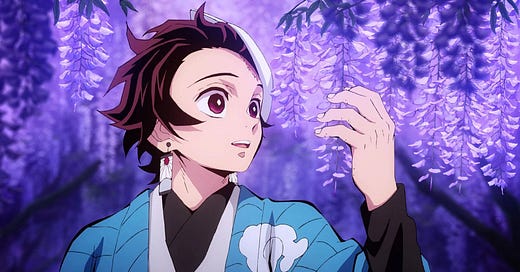




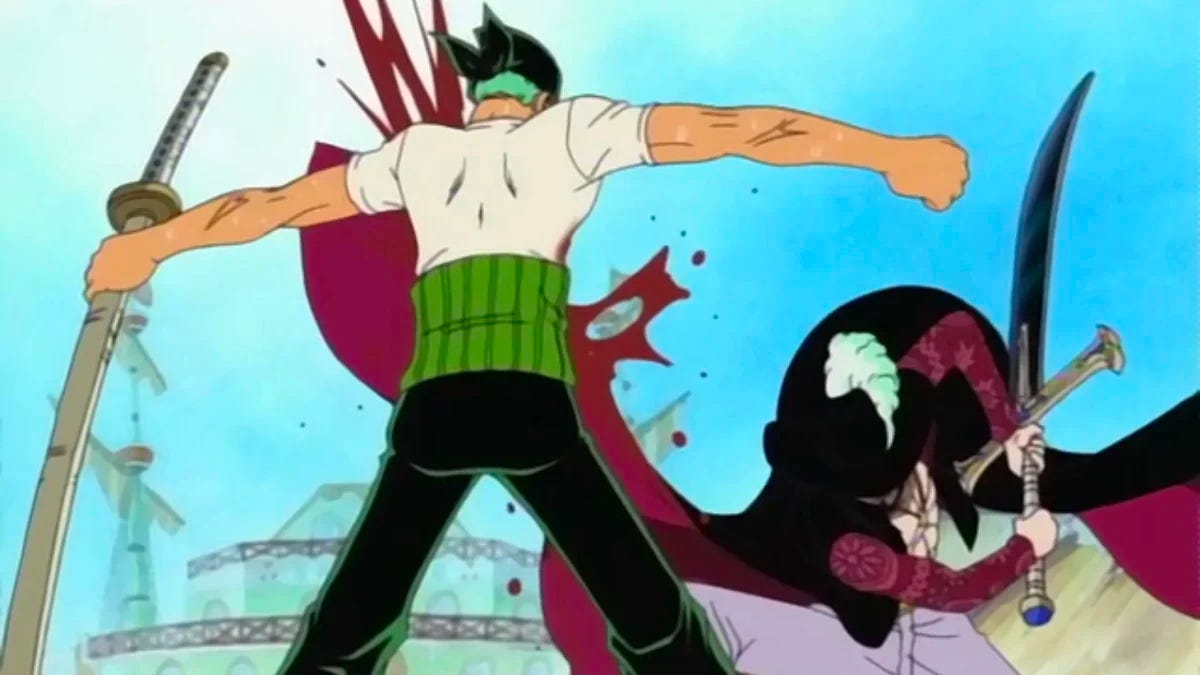







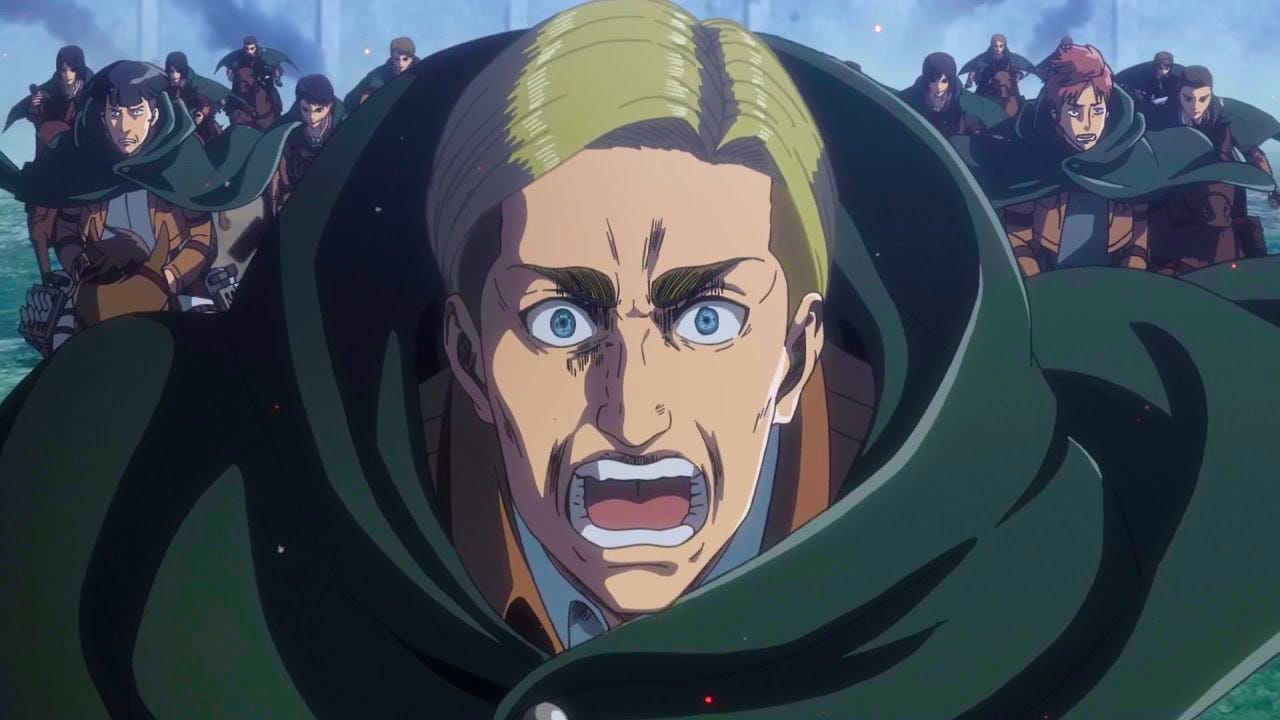
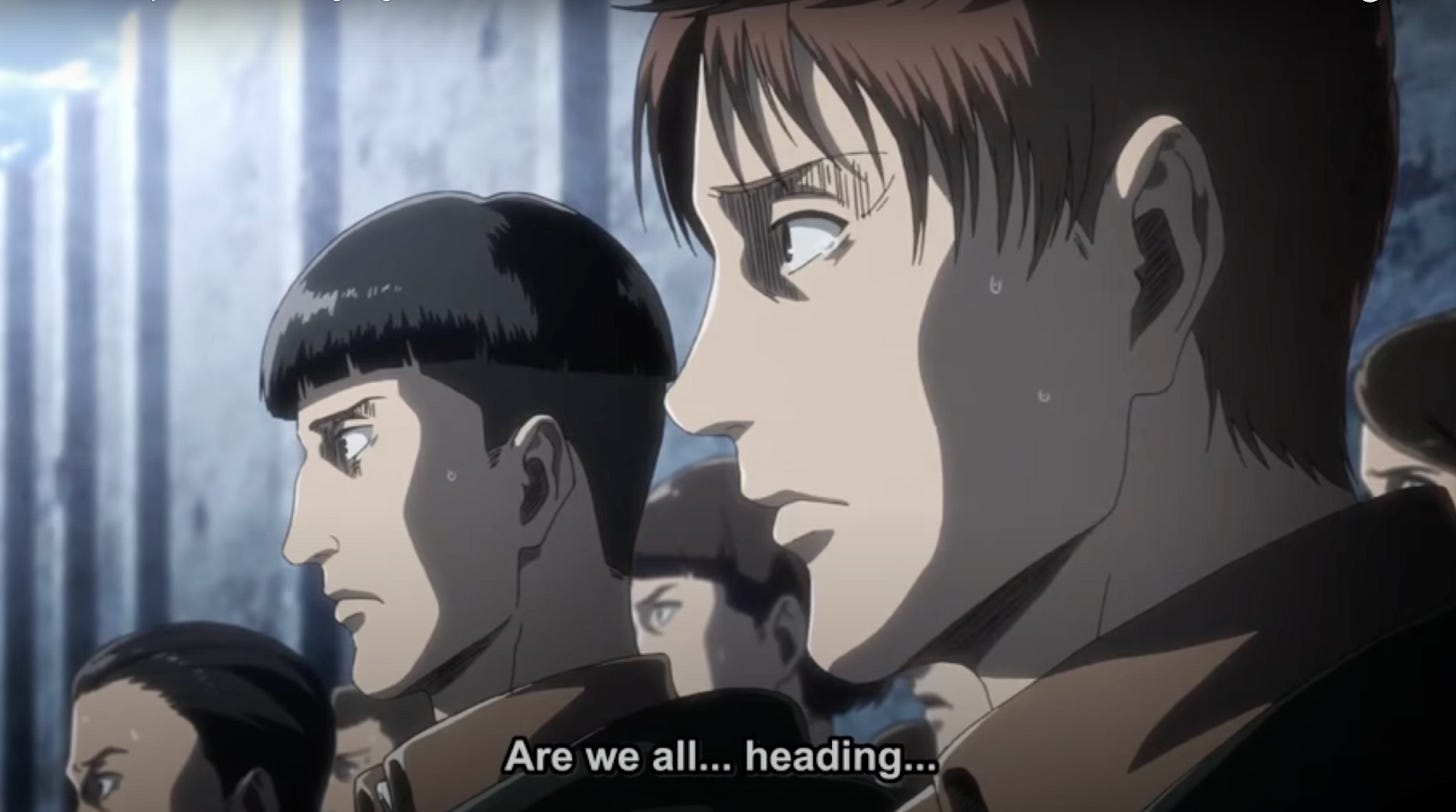

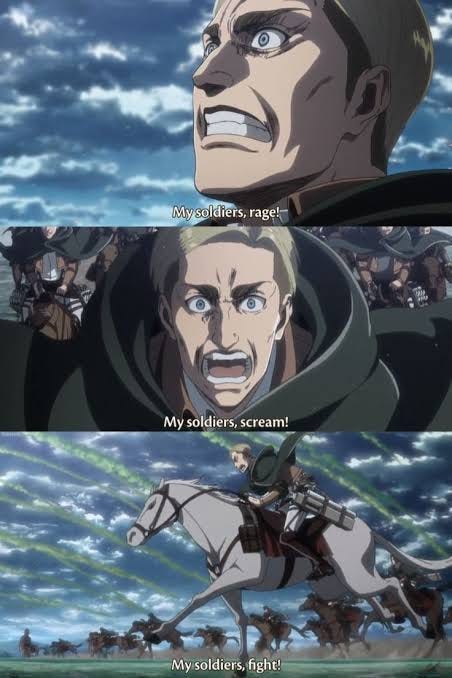
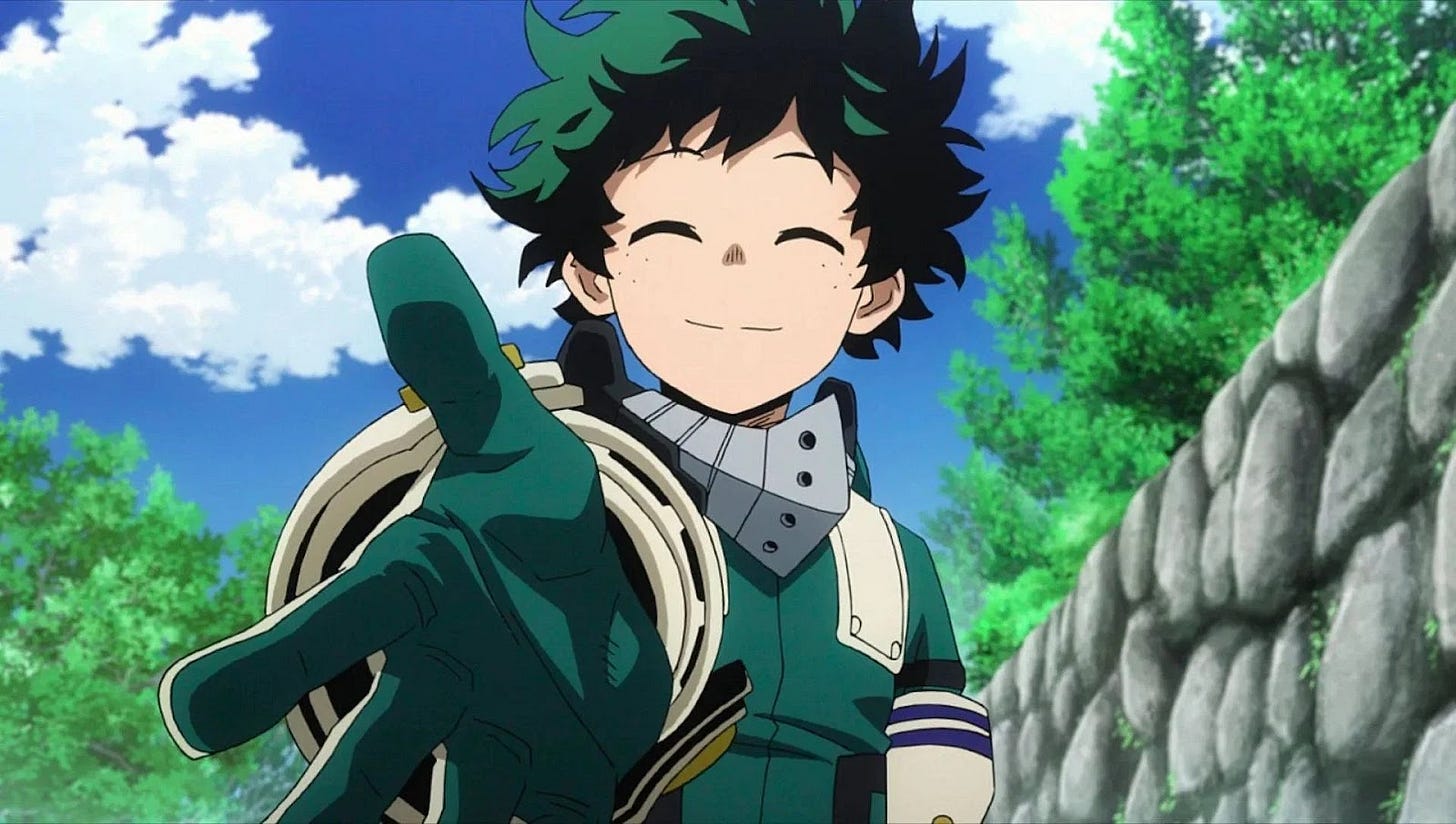
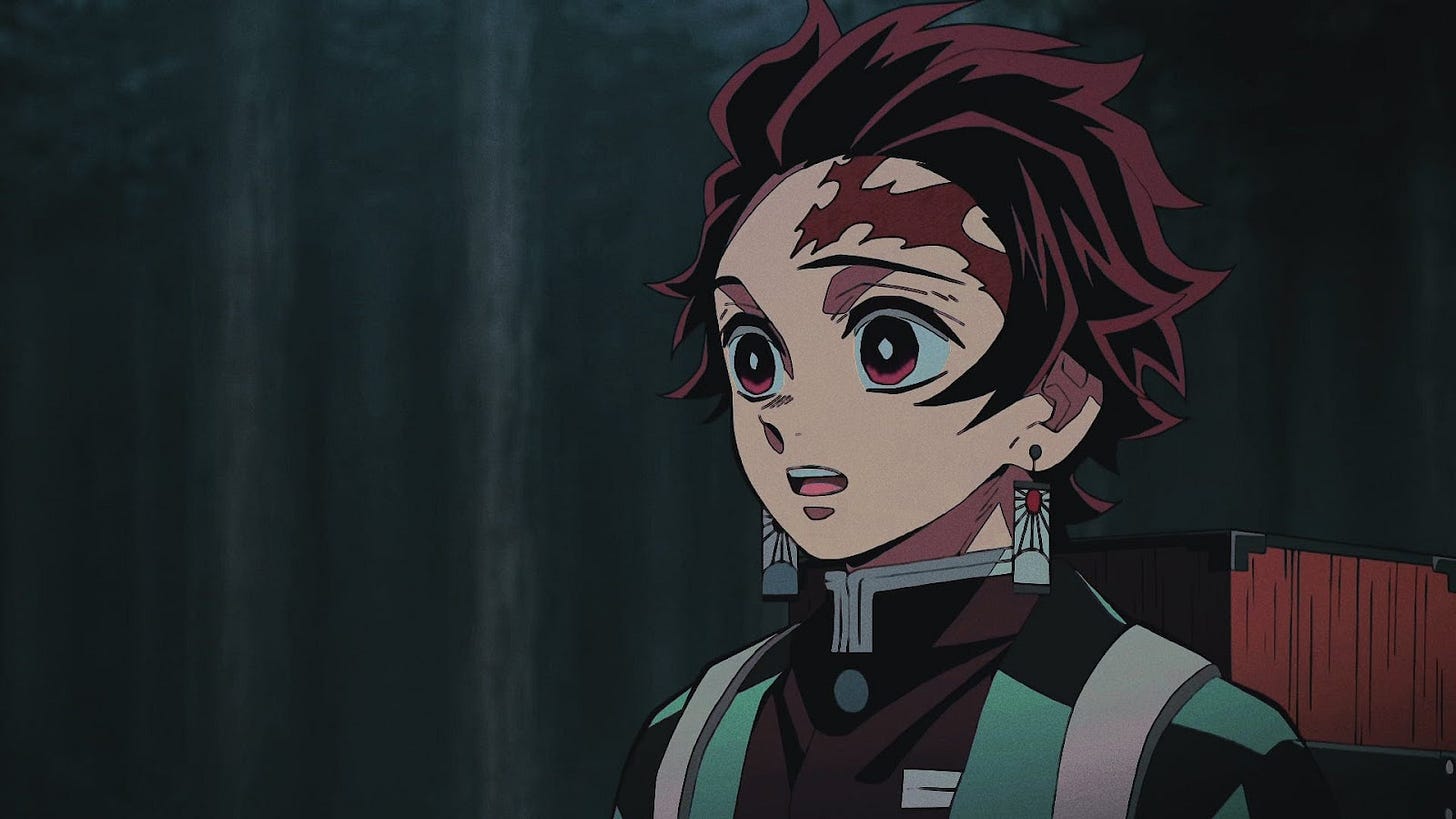

Awesome, caused a brief reflection in my sense of duty!!! A real shame we did not get any bleach anime references, a biased writer.
talking about heroes burning themselves; this reminds me of the monk, Thich Quang Duc, whom you know better than I do